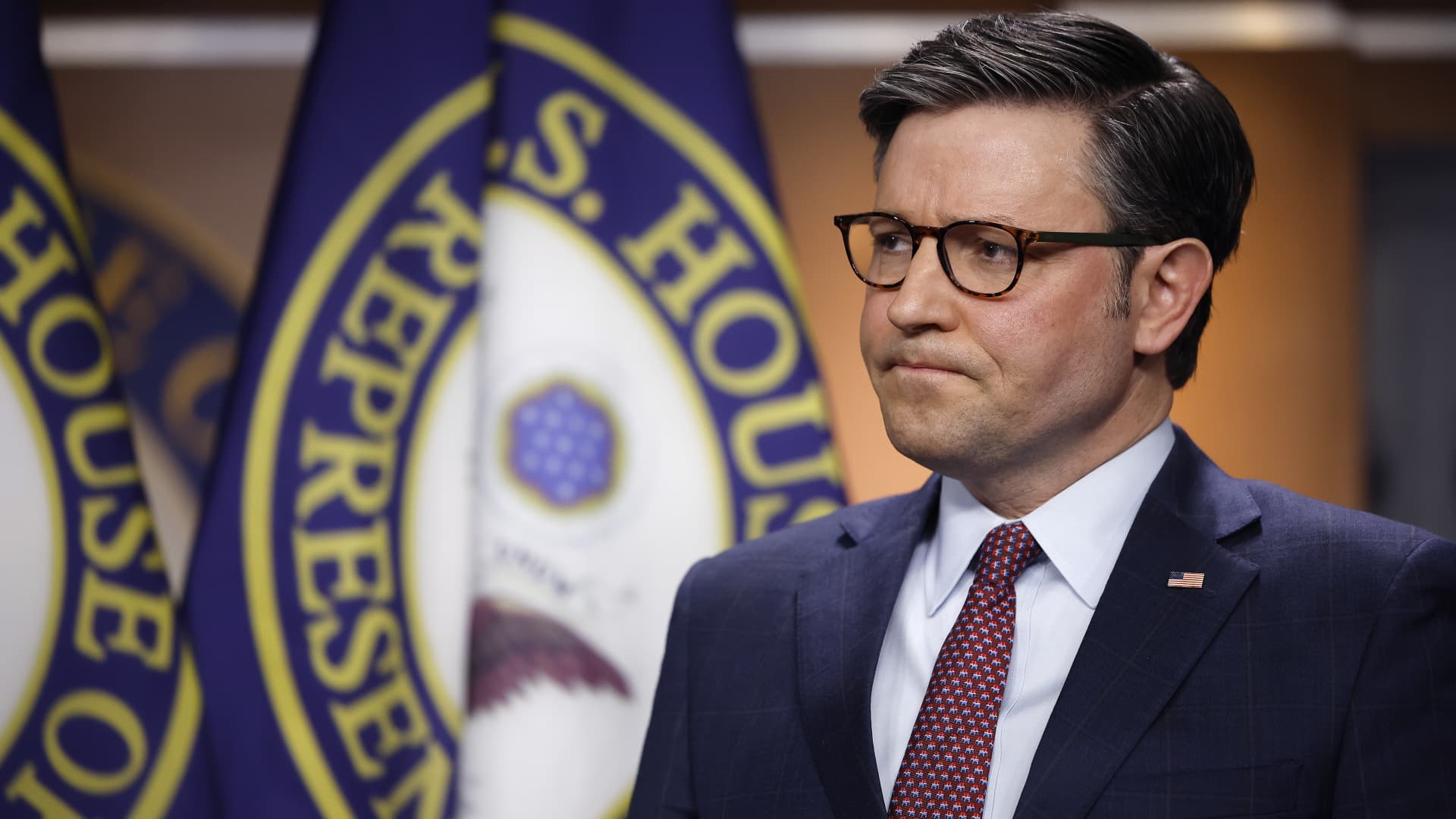Speaker of the House Mike Johnson (R-LA) holds a news conference following a caucus meeting at the U.S. Capitol Visitors Center on January 30, 2024 in Washington, DC.
Chip Somodevilla | Getty Images
House Speaker Mike Johnson, R-La., on Saturday announced an Israel-only funding package to be voted on next week, another step in the deadlocked negotiations over emergency aid that President Joe Biden initially proposed in October.
The House proposal comes as a challenge to a long-awaited Senate package that is expected to be released this weekend. The Senate’s bill is expected to include broader foreign aid than just Israel and address border security funding.
But the Republican-majority House has voiced its intention to be hard on the Senate’s proposal, especially as Johnson tries to appease Republican hardliners who expect him to deliver on their ultraconservative wish list to limit spending and maximize border security.
“While the Senate appears poised to finally release text of their supplemental package after months of behind closed door negotiations, their leadership is aware that by failing to include the House in their negotiations, they have eliminated the ability for swift consideration of any legislation,” Johnson wrote in a letter he addressed to “Friends.”
“Next week, we will take up and pass a clean, standalone Israel supplemental package,” the speaker added.
The House bill includes $17.6 billion for Israel’s military and U.S. military forces in the region as the war with Hamas in Gaza continues. If approved, this funding would add to the $14.3 billion that the House passed for Israel in the wake of Hamas’ Oct. 7 attack.
This bill separates aid to Israel from Ukraine, Taiwan and the U.S. southern border, all of which were linked in Biden’s original $105 billion aid proposal. That initial bill included $61 billion for Ukraine, $14.3 billion for Israel, $6.4 billion for the U.S. border and $2 billion for Taiwan.
But disagreements over how to address the U.S. border and whether to continue funding Ukraine’s defense against Russia stalled the passage of Biden’s October aid package.
Democrats and Republicans have gone back and forth for months negotiating the proposal, leading to a near-miss government shutdown and eating into some lawmakers’ holiday break.
Democrats argue that Ukraine funding is essential to preventing the further rise of authoritarian Russian leader Vladimir Putin and his threat to global democracy. Meanwhile, Republicans want to rein in Ukraine aid, claiming that without a clear end in sight, the nearly two-year war has led to U.S. overspending.
The border has been another major sticking point, as the number of migrants crossing over to the U.S. reached record highs over the past few months. The influx has overwhelmed some cities, whose mayors say they do not have the resources or infrastructure to accommodate the incoming migrant population. That crisis has led Republicans to press even harder for their border security wish list, which includes policies that the Democrat-majority Senate would likely never pass.
These clashes deadlocked the emergency aid package for months. Democrat and Republican lawmakers assured that they were working to find middle ground.
Both sides appeared optimistic that they were making progress. For example, in January, Johnson and Democratic Majority Leader Chuck Schumer of New York said they had a productive meeting with Biden where they assured they would be able to reach a bipartisan agreement to address the border, Ukraine and the rest of the president’s funding requests.
However, in recent weeks, politics have hindered that progress. In closed-door meetings, Senate Minority Leader Mitch McConnell of Kentucky reportedly told senators that former President Donald Trump wanted to torpedo the deal so as not to deliver Biden a campaign victory during an election year. Trump has regularly used the border crisis as a campaign talking point against Biden in his 2024 bid for re-election.
Read the original article here
